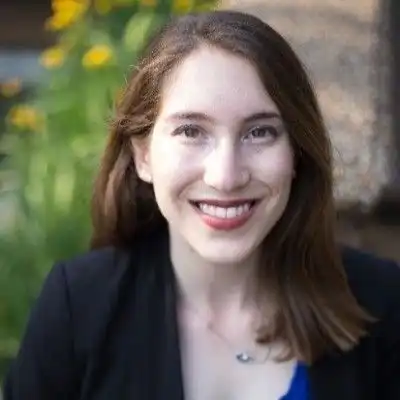Home>Alexis, Analyst, The World Bank Group
27.09.2023
Alexis, Analyst, The World Bank Group

Originally from the United States, Alexis Cheney graduated from the Dual Degree program in International Affairs between PSIA and Columbia University’s School of International and Public Affairs (SIPA) in 2022. At PSIA, she completed the International Public Management program (now called International Governance and Diplomacy) with a concentration in Media and Writing.
Alexis is an Analyst at the World Bank Group in Washington, D.C. on the Women, Business and the Law research project.
What are your main responsibilities?
On the Women, Business and the Law team within the Development Economics Vice Presidency of the World Bank, I wear many hats. The project's overall goal is to publish an annual report on laws that impact women's economic empowerment in 190 countries, so my projects vary according to where we are in the report cycle. At the beginning of the cycle, I recruit legal experts from around the world to complete our surveys, analyze survey responses and research laws and policies impacting women's labor force participation. Then, I draft report sections and publish blogs about the research findings. I also help to disseminate the team's research by organizing events such as a panel discussion on empowering women SMEs at UN CSW67. This diverse set of projects requires several common skills: organization, communication, policy research, writing, data visualization and a strong work ethic.
How did you prepare for this job?
I originally joined Women, Business and the Law as a summer intern between my first and second year of the Master's program. I came across the internship posting by searching PSIA and SIPA's career portals and newsletters. In the internship application, I highlighted my participation in a relevant PSIA course (Professor Hélène Périvier's "Is a Gender Equal Society Possible?" Formation Commune) and attached my final paper from the course. During the interview process, I mentioned transferable skills I had gained during my recent internship within the OECD's Education Directorate.
What is the most fascinating part of your job?
The most fascinating part of my job is interacting with legal experts and gender equality advocates from around the world and hearing their perspectives on women's rights in their countries. For example, my colleagues come from around the world such as Korea, Lebanon, Ukraine and Egypt and I have had the chance to interview legal experts from Burundi, the Marshall Islands and Sri Lanka, among others. When attending UN CSW67 in March 2022, I also had the exciting opportunity to hear from Sierra Leone's Minister of Gender and Children’s Affairs and learn about the process of passing the recent Gender Equality and Women's Empowerment Act.
How did your PSIA experience contribute to the position you hold today?
At PSIA, we gain a lot of experience researching and writing about policies and laws. The process of efficiently learning about an issue by synthesizing many information sources and then writing a summary of the issue has been very beneficial in my current position. In my role, I am also currently researching effective policy measures to enforce parental leave laws so have been drawing on Professor Artigas's International Public Policy Making course.
What advice would you give to current students?
Professionally, I recommend strategically planning your internships during your graduate studies since internships can turn into full-time positions. Academically, I recommend sharpening data analytics skills in Excel, R and/or Stata. No matter the position, these skills are highly valuable! Lastly, I invite you to contribute to the research of Women, Business and the Law!
If you are interested in completing a survey on laws in your country that impact women's economic empowerment, please reach out to me: alexis.cheney@sciencespo.fr
Virtual Graduate Open House day, October 2025

On 18 October 2025: meet faculty members, students and representatives and learn more about our 30 Master's programmes.